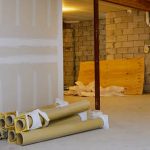Home Heat Envelope
Home Thermal Envelope… Home Heat Envelope…Heat Control Layer? Which is it? What is it? Why does it matter?
Are you having trouble keeping your home warm in the winter and cool in the summer? It may be time to have your home’s insulation assessed to check if you have an effective Home Heat Envelope.
So what is your Heat Control Layer? Everything that shields your home (or building) from the elements that may decrease your home’s energy efficiency, is part of the Heat Control Layer. For instance, this may include your insulation in areas like your attic or weathering strips on your doors.
Everything in your home, “head” to “toe” is included in the Home Thermal Envelope. For example, your roof to your windows, to your weather-stripping, and insulation. Simply put, the Home Thermal Envelope is the part of your home that separates the warm spaces inside, from the cold spaces outside (or visa versa in the summer). As a result, your home stays cool in the summer, and warm in the winter without making your heaters or air conditioners work harder than they should.
The Ideal Home Heat Envelope Saves You Heat and Money.
How can you tell if you have air leaks in your Home Heat Envelope? The secret is that you need to have good air flow. Ideally you should to have a “tight” Thermal Envelope in your home, but not so tight that you do not have any airflow. An extremely “loose” Home Thermal Envelope results in escaped heat and a drafty home.
Luckily enough, in Massachusetts we experience the variety of seasons that New England has to offer. With hot and humid summers, wet springs, and brisk, snowy winters, a good Home Thermal Envelope ensures that you are not making your air conditioner work too hard when it’s hot. Or your heater works too hard when it’s cold.
Not only will the Home Thermal Envelope of your home keep you warm in the winter, and cool in the summer, but it will help lower your energy bill. Of course, that helps us all play our part in fostering a sustainable environment
Interested in learning more about the Home Thermal Envelope and if your home has common air leaks? Schedule a home energy assessment today!





